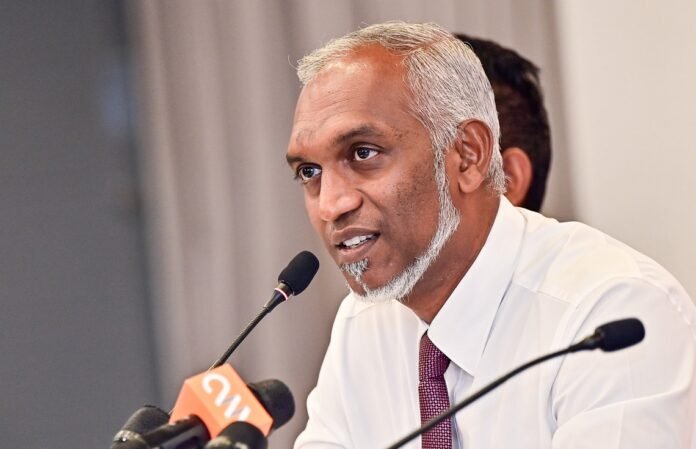In a dramatic turn of events, the Maldives government has issued a defiant response to the impeachment motion filed against Defense Minister Mariya Didi and Finance Minister Ahmed Munawar by the opposition coalition. With tensions running high in the archipelago nation, the government’s unequivocal stance of resistance has sparked intense debate and raised concerns about political stability and democratic norms.
The impeachment motion, initiated by the opposition coalition led by former President Abdulla Yameen, accuses Defense Minister Mariya Didi and Finance Minister Ahmed Munawar of alleged misconduct and negligence of duty. The motion, which requires a two-thirds majority in the Maldivian Parliament to pass, has escalated political tensions and cast a shadow over the government’s stability.
In response to the impeachment motion, the Maldives government issued a resolute statement, declaring, “They will have to kill us first.” The defiant rhetoric underscores the government’s determination to resist what it perceives as politically motivated attacks aimed at undermining its legitimacy and destabilizing the country.
The government’s defiant stance reflects broader concerns about the politicization of impeachment proceedings and the erosion of democratic norms in the Maldives. Critics argue that the impeachment motion, initiated by the opposition coalition, is a thinly veiled attempt to subvert the democratic process and regain political power by any means necessary.
Moreover, the government’s assertion of resistance highlights the high stakes involved in the political standoff gripping the Maldives. With the country’s stability hanging in the balance, the outcome of the impeachment motion could have far-reaching implications for the future of democracy and governance in the archipelago nation.
Furthermore, the government’s defiant response has reignited debates about the rule of law and the separation of powers in the Maldives. While the impeachment process is a legitimate mechanism for holding government officials accountable, concerns have been raised about the impartiality and transparency of the proceedings, particularly given the polarized political landscape.
Amidst the escalating tensions, calls for dialogue and reconciliation have emerged as a possible way forward to defuse the crisis. Civil society groups, international observers, and diplomatic stakeholders have urged all parties to engage in constructive dialogue and uphold democratic principles to resolve the political impasse.
However, finding common ground amidst entrenched political divisions and competing interests remains a formidable challenge. The Maldives, known for its fragile democracy and history of political instability, must navigate the current crisis with caution to prevent further escalation and safeguard democratic institutions.
In addition to the political ramifications, the impeachment motion and the government’s defiant response have also cast a shadow over the Maldives’ international reputation. As a popular tourist destination and strategic geopolitical player in the Indian Ocean region, the Maldives’ political stability is closely watched by the international community.
The government’s steadfast refusal to back down in the face of impeachment proceedings has raised concerns among foreign investors, tourists, and diplomatic partners about the country’s political stability and investment climate. The uncertainty surrounding the political situation could deter much-needed foreign investment and jeopardize the Maldives’ economic recovery from the COVID-19 pandemic.
In a nutshell, the Maldives government’s defiant response to the impeachment motion filed against Defense Minister Mariya Didi and Finance Minister Ahmed Munawar underscores the high stakes involved in the political standoff gripping the archipelago nation. As tensions escalate and political divisions deepen, the Maldives must navigate the crisis with caution to preserve democratic norms, uphold the rule of law, and safeguard political stability. The outcome of the impeachment proceedings will have far-reaching implications for the future trajectory of democracy and governance in the Maldives, making dialogue and reconciliation imperative to chart a path forward.
Amidst the political turmoil, there is a palpable sense of urgency for diplomatic intervention and international mediation to help navigate the Maldives through this crisis. Regional and global stakeholders have a vested interest in promoting stability and upholding democratic principles in the archipelago nation. Therefore, concerted efforts from the international community to facilitate dialogue and foster a peaceful resolution to the political impasse are crucial. By engaging in constructive diplomacy and supporting democratic processes, the international community can play a pivotal role in steering the Maldives towards a path of reconciliation and stability.

